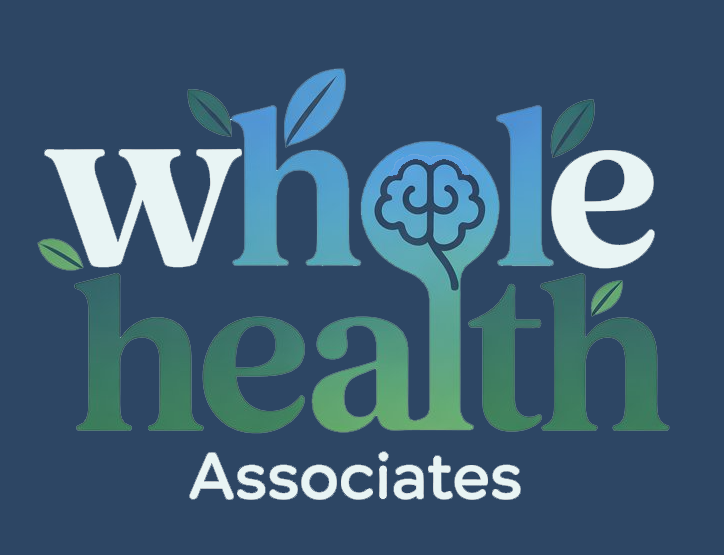Quality sleep is more than just rest — it’s a critical component of emotional well-being. At Whole Health Associates, we often see how sleep disturbances contribute to or worsen mental health conditions. Let’s explore how improving your sleep can significantly enhance your mental health and overall quality of life.
The Sleep–Mental Health Connection
Sleep and mental health are deeply intertwined. When we sleep, our brains process emotions, store memories, and regulate mood-related hormones like serotonin and cortisol. Poor sleep can disrupt these functions, leading to increased irritability, anxiety, and symptoms of depression.
Chronic sleep problems can:
- Impair your ability to manage stress
- Lower your threshold for emotional resilience
- Disrupt cognitive functioning, including focus and decision-making
- Exacerbate existing psychiatric conditions like anxiety, depression, and ADHD
Common Sleep Disorders Linked to Mental Health
- Insomnia: Difficulty falling asleep, staying asleep, or waking up too early can be both a symptom and cause of mental health conditions.
- Sleep Apnea: This breathing-related sleep disorder is associated with fatigue, depression, and impaired focus.
- Restless Leg Syndrome (RLS): Often linked to anxiety and difficulty staying asleep.
How Better Sleep Supports Emotional Balance
- Mood Regulation: Sleep helps regulate mood by allowing the brain to reset and recalibrate emotions.
- Stress Reduction: A good night’s sleep can reduce cortisol levels and improve your response to daily stressors.
- Increased Resilience: With quality sleep, you’re more equipped to face challenges and cope with emotional distress.
- Improved Focus and Memory: Restorative sleep supports better concentration, productivity, and problem-solving.
Tips to Improve Sleep Naturally
- Create a Consistent Sleep Routine: Go to bed and wake up at the same time each day, even on weekends.
- Limit Caffeine and Screen Time: Especially in the evening, to help your body wind down.
- Practice Relaxation Techniques: Deep breathing, progressive muscle relaxation, or mindfulness meditation.
- Optimize Your Sleep Environment: Keep your room cool, dark, and quiet.
- Get Professional Support: If sleep issues persist, speak with a mental health provider who understands the connection between sleep and emotional health.
We Can Help
At Whole Health Associates, we address sleep as a key part of your mental health treatment. Whether through psychotherapy, behavioral sleep strategies, or medication management, we tailor a plan that helps you sleep better — and feel better.
🛏️ Ready to prioritize your rest? [Schedule a consultation] with us today and take the first step toward better sleep and stronger emotional health.

